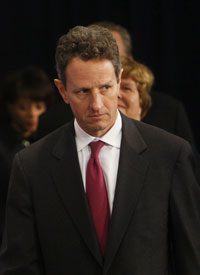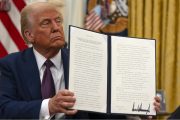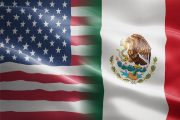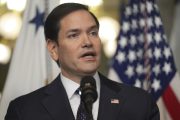
It consists of 30 ultra-elite international financiers, who control – or whose friends control – the monetary policy for most of the world’s governments. The connections with the secretary of the treasury nominee warrant a closer look at this internationalist organization and its possible effects on an already reeling American economy.
The actual name of the Group of Thirty organization is "Consultive Group on International Economic and Monetary Affairs, Inc." It sponsors conferences and publishes papers on seemingly arcane monetary policy issues. Monetary policy is defined as "actions that are designed to influence the availability and cost of money." That is in contrast to fiscal policy, which has to do with government spending and taxing.
The Group of Thirty was started in 1978 by Geoffrey L. Bell, who has been affiliated with the U.S. Federal Reserve in a number of capacities, as well with Her Majesty’s Treasury, and has a consultancy that advises central bankers and major corporations. He is a genuine insider’s insider. Currently the Group of Thirty is headed by Paul A. Volcker, former Fed chairman, UN heavyweight and Barack Obama’s current head economic adviser. Previous Group of Thirty luminaries include former Fed Chairman Alan Greenspan and a lengthy roster of international glitterati.
One of Geithner’s compadres in the current iteration of the Group of Thirty is Lawrence Summers, former president of Harvard and former Treasury Secretary, former chief economist of the World Bank, and now Obama’s National Economic Council director. Others include former Mexican president Ernetso Zedillo, honchos of international investment firms Goldman Sachs, Chase, Morgan Stanley, and heads of important central banks around the world, including those of China, India, Japan, Europe and South America.
Geithner’s impressive accomplishments in the field of banking brought him to the presidency of the Federal Reserve Bank of New York, arguably the nation’s most powerful banking institution, in 2003, when he was in his early 40s. He is also a board member of the RAND Corporation, an influential liberal think thank. He has ties, direct or indirect, to virtually every important financial institution on the globe. In his capacity at the New York Fed, he has been at the very center of advocating for and administering the large bailouts for the financial industry sponsored by President Bush and passed by Congress.
This is the man President Obama has chosen for secretary of the treasury. Shouldn’t his connections to the banking elites be part of the public and congressional debate in addition to the concerns about his failure to pay incoming taxes over many years amounting to tens of thousands of dollars? One would hope that the treasury secretary would both understand and comply with the income tax code the rest of us have to endure, but surely Geithner’s connections to the banking elites are important too.



